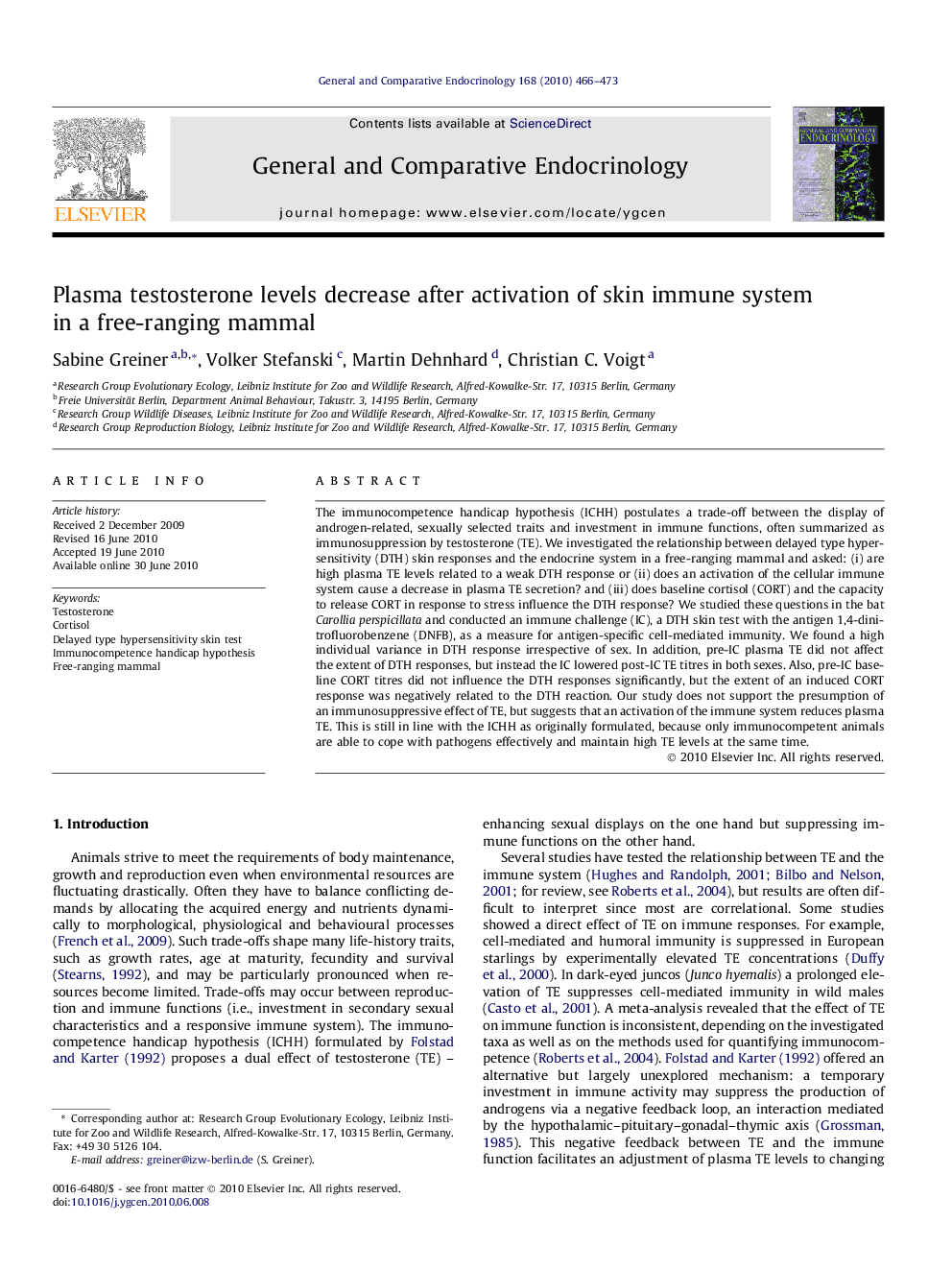| Article ID | Journal | Published Year | Pages | File Type |
|---|---|---|---|---|
| 2801029 | General and Comparative Endocrinology | 2010 | 8 Pages |
Abstract
The immunocompetence handicap hypothesis (ICHH) postulates a trade-off between the display of androgen-related, sexually selected traits and investment in immune functions, often summarized as immunosuppression by testosterone (TE). We investigated the relationship between delayed type hypersensitivity (DTH) skin responses and the endocrine system in a free-ranging mammal and asked: (i) are high plasma TE levels related to a weak DTH response or (ii) does an activation of the cellular immune system cause a decrease in plasma TE secretion? and (iii) does baseline cortisol (CORT) and the capacity to release CORT in response to stress influence the DTH response? We studied these questions in the bat Carollia perspicillata and conducted an immune challenge (IC), a DTH skin test with the antigen 1,4-dinitrofluorobenzene (DNFB), as a measure for antigen-specific cell-mediated immunity. We found a high individual variance in DTH response irrespective of sex. In addition, pre-IC plasma TE did not affect the extent of DTH responses, but instead the IC lowered post-IC TE titres in both sexes. Also, pre-IC baseline CORT titres did not influence the DTH responses significantly, but the extent of an induced CORT response was negatively related to the DTH reaction. Our study does not support the presumption of an immunosuppressive effect of TE, but suggests that an activation of the immune system reduces plasma TE. This is still in line with the ICHH as originally formulated, because only immunocompetent animals are able to cope with pathogens effectively and maintain high TE levels at the same time.
Related Topics
Life Sciences
Biochemistry, Genetics and Molecular Biology
Endocrinology
Authors
Sabine Greiner, Volker Stefanski, Martin Dehnhard, Christian C. Voigt,
